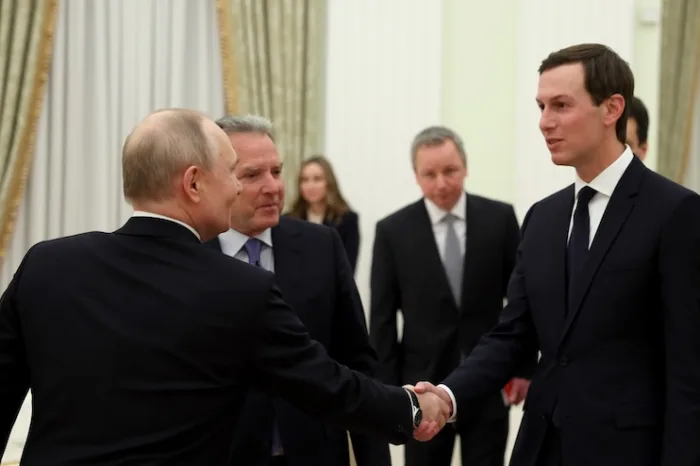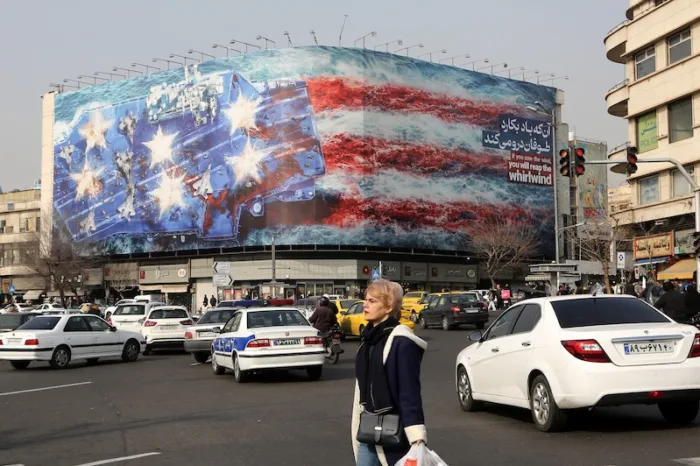US moves toward elections amid COVID-19-induced changes

Last week this column addressed how the coronavirus can change the debates and domestic dynamics of the U.S. elections. The crisis management and leadership in handling the outbreak, the economy – in particular, unemployment rates – and the state of the health care sector in the U.S. were cited as potential issues that may arise or be amplified as a result of the pandemic.
However, they are not the only topics that will come forward during the debates in the campaigns as a result of the coronavirus outbreak. There will be coronavirus-related foreign policy issues that will be debated as well.
Although foreign policy issues are not usually primary topics for the candidates and voters in the presidential elections, given the global nature of the existing crisis, there will be some issues concerning the coronavirus outbreak and foreign policy.
The first of these will be without a doubt relations with China. In the last several presidential elections, presidential candidates have regularly received questions about the China issue.
Since the beginning of the debates on “the rise of China,” the candidates have been asked how to deal with this “threat” or “opportunity.” With the presidency of Xi Jinping and the increasing assertiveness in Chinese foreign policy in different issue areas, we have seen that these discussions are also arising in the U.S. elections.
There are matters of mutual concern for the two countries, including the tension in the South China Sea and intellectual property right infringements. With President Donald Trump’s presidency, trade disputes between the two countries have become one of the defining features of bilateral relations.
“Trade war” has become one of the most frequently used concepts to describe their relationship. However, the spread of the coronavirus and the accusations against China from the White House demonstrate that in this election, the pandemic will have a major impact on how China is being discussed in the campaign.
The campaigns of presumptive Democratic nominee Joe Biden and Trump already started to air campaign ads questioning each other’s attitude toward China. The Biden campaign is airing ads featuring clips of Trump praising Xi whereas the Trump campaign is airing ads featuring clips showing Biden endorsing cooperation with China.
Almost each and every week, new information is being released in regard to China’s concealment of significant information about the spread of this virus. If there will be a second wave in the fall season, these debates and the candidates’ position on China will be some of the determinants of voting behavior in the U.S.
The candidates will be asked how to respond to the information or intelligence about China’s alleged mistakes and omissions in dealing with the crisis.
Secondly, considering Trump’s policy toward the World Health Organization (WHO), there will be debates regarding U.S. foreign policy and international institutions.
So far Trump has already demonstrated his unwillingness to engage with international organizations. He argues that the deals that are reached in multilateral settings do not serve well for the national interest of the U.S.
With the WHO’s failure in the early stages of the coronavirus outbreak, Trump now has another argument to make against U.S. engagement with international institutions.
He already suspended U.S. funding for the WHO, and during the campaign season, he will probably bring this issue more frequently to the center stage of the debate. If Trump continues to bring up the issue of the coronavirus outbreak and the WHO’s role in this, the candidates will be asked about their approach to international institutions.
Finally, very much related to the U.S. policy toward international institutions, the other multilateral engagements of the U.S. will also be debated during the election season. The coronavirus outbreak one more time raised the question of unilateralism vs. multilateralism in U.S. politics.
Trump’s unilateral decision to stop the flights from Europe was frequently mentioned as an example of the lack of transatlantic cooperation and coordination during this pandemic. Trump will most likely move forward with his “America First” approach and defend his unilateral decisions during the outbreak.
On the other hand, Biden will most likely criticize Trump for not cooperating with other nations during the crises. It is important to remember that Trump withdrew the U.S. from three important multilateral arrangements that former President Barack Obama worked hard to establish, namely the Paris Agreement, the Trans-Pacific Partnership and the Iran nuclear deal. Biden was Obama’s vice president during this period. Thus, with the impact of the coronavirus outbreak, this multilateral engagement debate will take a new shape between two candidates.
This article was first published by Daily Sabah on May 12, 2020.























